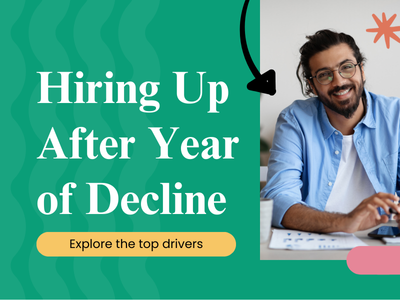NACE Journal / May 2022
Economic uncertainty often causes employers to amend their expectations of new hires. The 2008 economic recession and the unexpected events of COVID-19 are two examples where mindsets around recruiting shifted, and the entry-level employment landscape yielded unexpected results. Technical knowledge, discipline-specific competencies, and work-related skills have been sought after by employers for some time and confirmed by a 2019 study, which highlights six skills and competencies rated the highest by employers in the Northeast: interpersonal skills/works well with others; critical thinking/problem-solving skills; listening skills; oral/speech communication skills; professionalism; and personal motivation.1, 2
Yet, the rise of remote work and shifts in skills and competency needs caused by COVID-19 forced higher education and new graduates to reimagine the world of work. In the 2020-2021 Recruiting Trends survey, more than 2,400 employers revealed some of these changing expectations in their advice to students making their post-college transition.3 This article examines employer expectations of new college graduates’ career preparation and employability during and following the COVID-19 pandemic and offers advice for young adults as they transition to the workplace.
Employer Expectations in Times of Uncertainty
The impact of COVID-19 on the college-to-career transition shifted employer expectations of the college labor market and new college graduates in some expected ways while holding constant in other unexpected areas. These shifts elevated relevancy for Marilyn Clarke’s comprehensive model of graduate employability, which recognizes six key dimensions: human capital (skills, competencies, work experience), social capital (networks, social class, university ranking), individual behaviors (career self-management, career-building skills), individual attributes (personality variables, adaptability, flexibility), labor market (supply factors, demand factors), and perceived employability.4
Clarke’s comprehensive model of graduate employability is foundational to Jamie Merisotis’ vision of developing our unique capabilities as humans through a lifetime of learning opportunities that are easy to navigate and collected from a broad range of credentials from college degrees to occupational certifications.5 In some ways, the pandemic expedited the need for the learning opportunities that Merisotis referenced while requiring our learning systems to deliver on what was for so many years only a vision: options for remote work in sectors of the labor market never dreamed possible. In addition, employability needs shifted significantly during the pandemic, drawing on human capabilities such as innovation, ingenuity, a nimble mindset, and crisis management.
Advice for the Job Seeker
Employers that completed the 2020-2021 Recruiting Trends survey offered key advice for job seekers; although the employment outlook has changed since then, the guidance transcends a single point in time. If the pandemic showed us anything, it is that expectations can change almost overnight, and much of what employers recommended applies to disruption in general.
The T-professional
For information about the T-professional, see:- A Primer on the T-professional, by Philip Gardner and Doug Estry. Michigan State University. 2017. https://ceri.msu.edu/_assets/pdfs/t-shaped-pdfs/Primer-on-the-T-professional.pdf.
- Advancing Talent Development: Steps Towards a T-model Infused Undergraduate Education. Edited by Philip Gardner and Heather Maietta. Business Expert Press. 2020.
Adapt one’s mindset. The most common piece of advice given by survey respondents, by far, was the call for job seekers to be flexible and adaptable to changing work environments and job opportunities. Casting a wider net, considering lower-level opportunities, and/or accepting less money were among the options employers identified. Some employers suggested that job seekers use their time during the pandemic to show how they are adaptable to change. Being open-minded about opportunities and flexible—career pathways can adapt to changing dynamics—are key in this new and ever-changing workplace.
Foster relationships and networking. Fostering relationships and networking was a strong thread emphasized by employers. This finding is not surprising since, year after year, communication skills land in the top five on the most sought-after new graduate workplace competencies.6 Survey respondents noted that fostering relationships is more important than ever to professional success and emphasized the necessity of building strong networks during and after the pandemic for a successful job search.
This advice applies not only to the new graduate but also as one progresses through their career. Strategies for fostering relationships included building virtual networks/virtual networking skills early and using multiple platforms to connect with colleagues. Respondents also suggested job seekers be proactive about communicating with potential employers virtually, since there were far fewer orchestrated opportunities to get in front of them during the height of the pandemic. Specific avenues for achieving this goal included using professional associations to expand networks, networking virtually over video calls, and joining (and contributing to) topical social media professional groups. Notable employer responses included:
Having a broad network and the courage to put that network into play will be vital over the next couple of years.
Networking is as important as ever, and this can be done very effectively over a virtual platform. Make a list of top companies you are targeting and why. Find people who work in the field you are targeting and reach out asking for an informational interview. Request 15-minute phone calls to find out how they got to where they are, and during these conversations, you can share your own goals. When things clear up, you can offer to treat them to a cup of coffee, but a phone call is better now. This is commonplace in most industries and is almost always successful in some way.
If someone else can vouch for you, that makes a big difference.
Gain real-world experience. It is unsurprising that many respondents also emphasized the importance of gaining real-world experience through internships, co-ops, part-time jobs, and volunteering. The important takeaway is that employers stressed the importance despite the pandemic: There was no sense of “it is okay not to seek working experiences during COVID-19.” Instead, employers emphasized that building some experience is extremely important regardless; some even noted that prior experience could be a competitive edge during a pandemic job search as it would reduce the need for on-the-job training, making the candidate more appealing to potential employers. Employers also emphasized the importance of gaining experience outside of an academic setting, and any experience is preferred to no experience.
Survey respondents commented that any work experience provides connections that can be leveraged into a full-time position, including internships and volunteer opportunities. This feedback is directly in line with T-professional competencies and echoed by Gili Marbach-Ad, Carly Hunt, and Katerina Thompson, who posit that many STEM educators have responded to the gap between student skills and employer expectations by recommending that undergraduate curricula and work-integrated learning opportunities focus on cross-disciplinary skills in addition to discipline-specific skills and content knowledge.7
Among their responses, employers noted:
Intern. Intern. Intern. Demonstrate your ability to at least try out a potential career field before an employer makes a full-time investment in you. Show your ability to be employable. If internships in your field are not available, still try to obtain part-time jobs to gain relevant experience. Do as much hands-on training as possible, either via lab, virtually, or in-person.
Take a job to get started, work your way up, and gain experience as you go. Do not expect to get your dream job and dream salary directly out of school.
Understand how to leverage the experience you gained in the past or, if you don't have any, be very strategic about what you get involved with moving forward; blaming COVID is not an excuse for no experience—be it a job, leadership, or volunteer [position].
Become comfortable with working remotely. Respondents’ discussion centered on job seekers and new employees being comfortable in a remote working environment by, for example, practicing communication skills for virtual work, exercising solid organizational habits, engaging frequently and repeatedly in the virtual world, and showcasing strong interpersonal skills and independence. Respondents emphasized the need to become comfortable with using virtual technologies, such as video presenting. In addition, several noted that students could leverage their experience in online learning to demonstrate needed work-from-home skills, such as discipline and productivity. Many respondents also warned that isolation can deter relationship-building and advised on how to counter that. Comments included:
Less in-office interaction requires more communication digitally to stay on top of things. You will be judged more closely in a virtual situation than in person.
Relationships are more important than ever. But, virtually, they will be more difficult to build. Be ready to over-communicate with your team and supervisor if you are working in a remote capacity. Use video calling as much as possible so as not to lose touch with social norms.
Set up secluded office space at home with minimal to no distractions, set time for breaks, and stick to your schedule.
Working remotely seems like a fantastic thing and it does have perks but, to be successful, you must be self-disciplined to get up, get ready, and do your work (well) without direct oversight. So build extremely solid work-from-home habits and discipline now.
Become comfortable with how to communicate effectively and efficiently using online technologies. Arrive to your meetings on time (time management), be prepared when it is your turn to report out (work well independently), and be concise in your delivery (efficiency).
Despite the shift from an in-person to a remote working environment, employers reported maintaining high expectations regarding professionalism. Timeliness, appropriate dress, business acumen, meeting etiquette, and respect for colleagues were expectations that did not alter with the remote pivot. Employers reported professionalism—or lack of it—was more noticeable when connecting in a remote environment because there were fewer office “distractions.” Key responses included:
Get a virtual background or get the crap off your walls, so you look like a professional.
Don't lose sight of your professional and social skills despite our communication platforms being different.
No process is ever perfect; there will be bumps along the way, so treat the people who are trying to assist you with kindness and respect, as both of those go a long way.
Gain proficiency in virtual technology. Survey respondents also discussed the need for students to become proficient with virtual technologies, noting that being virtual requires greater competence in verbal and written communication than what is experienced in the traditional workplace. It was common for respondents to advise students to become proficient in virtual meeting technology, industry-specific software, and tools such as Microsoft Office. The data indicated that employers have a heightened need for tech skills thanks to COVID-19 and the pandemic’s forced workplace changes. Relevant responses included:
Not only [should you] become comfortable presenting ideas via video, but [you should also] learn how to USE the platforms operationally. Do not assume the person on the other end (hiring manager, supervisor) will navigate the platform for you if you do not know how.
Students must equip themselves with as much digital knowledge as possible.
Enroll in technology classes because technical skills will be required in the new "norm."
We expected new graduates to have more comfort with software tools than what we're seeing. The quicker they can get up to speed on the tech tools, the better.
Create alternatives to fill gaps and bolster abilities. There were mixed responses related to continued learning to augment one’s degree. Responses emphasized setting oneself apart with certifications, developing new skills, and thinking about how academic studies translate to a variety of future careers, not just those in direct alignment, i.e., engineering to engineering.
Given the nature of the job market at the time, some employers suggested that new graduates consider obtaining additional degrees or certifications to improve job prospects and stressed the need for everyone to continue professional and skills development. Of course, career development professionals should only work with students to investigate dual degrees, double majors, and triple-minor options if they make sense
The rest of the story. Employers also advised students to prepare for the transition from college to a workforce retooled by the pandemic through focus, grit, patience, and persistence. Employers encouraged new graduates to maintain self-discipline and energy during and after the pandemic because these attributes will be needed to navigate the new normal. Regardless of fluctuating job markets or challenging workplace conditions, employers look for nimble candidates willing to overcome obstacles.
Several employers stressed that, despite the heavy focus on remote work and the need to shift to online learning, not all jobs can be done virtually. Employers cautioned students and new graduates to reflect on the work environment that is most comfortable: on-site or virtual work, or a combination of both, and to be honest and realistic. The workplace is still very much in flux, and all employees should prepare themselves for virtual and on-site work.
In short, results from the 2020-2021 Recruiting Trends survey revealed that students, professionals, and institutions need to develop new ways of building and maintaining networks, expanding competencies and credentials (specifically around technology), and broadening expectations related to employment options.
The Evolving Workplace
Recent research posits that college degree programs cannot keep pace with how fast the workforce evolves.8 Therefore, individuals are responsible for augmenting a college degree by engaging in ongoing skill building and professional development to keep themselves positioned to succeed in the workplace. A one-time occupational choice is no longer an option. Developing a more profound knowledge of the systems, skills, and abilities needed to work within and across disciplines has now moved from a suggestion to a necessity.
Yet, with the rapid shifts in need, what skills and competencies are demanded to succeed in today’s workplace? NACE’s career readiness initiative identifies critical thinking, communication, teamwork, equity and inclusion, professionalism, technology, career and self-development, and leadership as the most important career readiness competencies that graduating college students can demonstrate when entering the workforce.9 An individual with “elastic talent” possesses or attains a breadth of skill and competency and adapts a growth mindset to combat disruption as it occurs.10 The workplace will remain in a constant state of flux as the workforce reinvents itself post-pandemic. This flow will require elastic individuals who regularly engage in reimagining themselves and their work to meet their personal needs.11, 12
New graduates beginning to shape their careers must continually adjust to changes, navigate career environments with shrinking personal boundaries, and make ongoing professional choices authentic to themselves within the rapidly shifting workplace landscape.
Endnotes
1 Gardner, P., & Maietta, H. N. (2020). Advancing Talent Development: Steps Towards a T-model Infused Undergraduate Education. Business Expert Press.
2 Baird, A. M., & Parayitam, S. (2019). Employers’ ratings of the importance of skills and competencies college graduates need to get hired: Evidence from the New England region of USA. Education + Training, 61(5), 622–634. https://doi.org/10.1108/ET-12-2018-0250.
3 Collegiate Employment Research Institute. (2021). 2020-2021 Recruiting Trends. Michigan State University.
4 Clarke, M. (2018). Rethinking graduate employability: the role of capital, individual attributes and context. Studies in Higher Education, 43(11),1923-1937. 10.1080/03075079.2017.1294152.
5 Merisotis, J. (2020). Human work in the age of machines. Rosetta Books.
6 National Association of Colleges and Employers. (2019). Job Outlook 2020.
7 Marbach-Ad, G., Hunt, C., & Thompson, K. V. (2019). Exploring the values undergraduate students attribute to cross-disciplinary skills needed for the workplace: An analysis of five STEM disciplines. Journal of Science Education and Technology, 28(5), 452–469. 10.1007/s10956-019-09778-8.
8 Zao-Sanders, M., & Palmer, K. (2019). Why even new grads need to reskill for the Future. Harvard Business Review, 2-5.
9 National Association of Colleges and Employers. (n.d.) Career readiness defined. Retrieved from www.naceweb.org/career-readiness/competencies/career-readiness-defined/.
10 Gardner, P. & Perry, A. (in press) Adapting to an accelerating disruptive future: Melding work and learning through the role of the T-professional. International Handbook for Work-integrated Learning. 3rd edition. Routledge.
11 Miller, B. (2020). What is an elastic workforce? HR Daily Advisor. Retrieved from https://hrdailyadvisor.blr.com/2020/09/16/what-is-an-elastic-workforce/.
12 Romac, C. (2020). Elastic workforce—the right talent at the right place at the right time. Capgemini. Retrieved from www.capgemini.com/us-en/2020/05/elastic-workforce-the-right-talent-at-the-right-time-at-the-right-place/.




